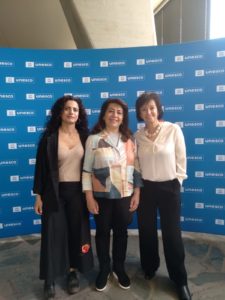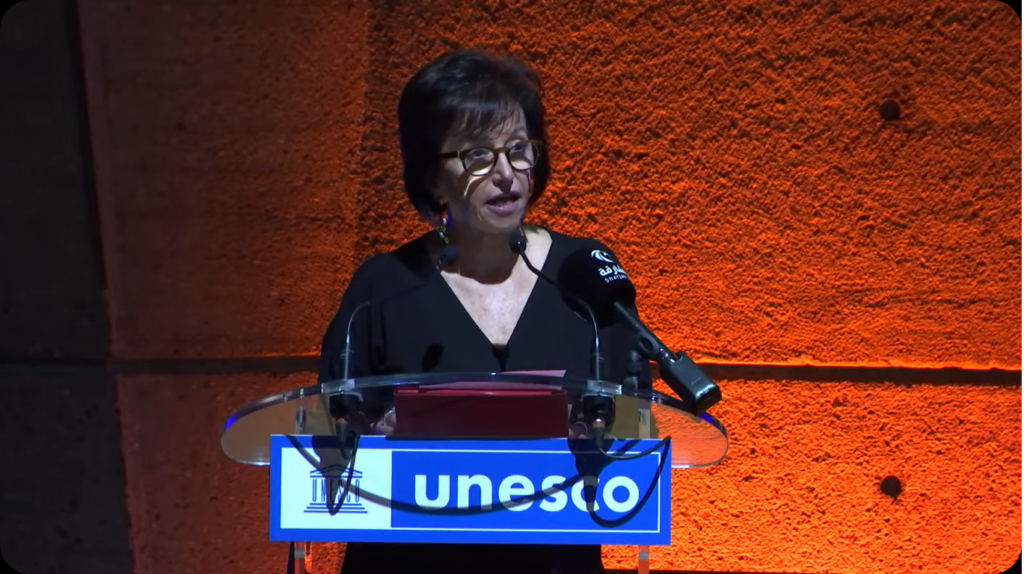São Paulo – This Monday (30), historian and cultural director of the Arab Brazilian Chamber of Commerce (ABCC), Silvia Antibas (pictured above), received the UNESCO-Sharjah Prize for Arab Culture. The Brazilian was awarded in 2019, but due to the COVID-19 pandemic, the prize-giving ceremony was held only this year in Paris, France.
Sharjah is one of the seven emirates of the United Arab Emirates. The award is promoted by Sharjah and the United Nations Educational, Scientific and Cultural Organization (UNESCO) to recognize those who work to spread knowledge of Arab arts and culture worldwide.

In Paris, Antibas thanked the award, highlighting the importance of the Arab community in Brazil. “[The Arab immigrants] brought their tradition, culture, gastronomy, and language. This is now part of modern Brazilian society. Many of them are now lawyers, doctors, artists, engineers, architects, entrepreneurs, sportspeople, academics, politicians, and digital influencers,” she said.
The historian has Syrian ancestry on her father’s side, who was born in Antioch, Syria, now Turkey, and Lebanese on her mother’s side. “I am a Brazilian of Arab origin. I am a historian, and I have always been curious about my eastern and western sides. I wanted to learn more, so I decided to research, and a lot of the answers about me came from arts and culture,” she said at the ceremony.
The Brazilian began her story with the ABCC when she was invited to author a book about the institution. Later, she was called to take over the culture department at the ABCC, where she currently conducts several projects related to the Arab culture. Antibas participated in the foundation of the Arab House, the branch to address cultural and immigration matters of the entity, and is one of the leaders of an ABCC project to digitalize the memory of Arab immigration in Brazil.
São Paulo

Before joining the ABCC, the historian held positions such as director of the Department of Museums and Archives (DEMA) and coordinator of the Cultural Diffusion, Libraries, and Reading Unit (UDBL) of the São Paulo State Culture Secretariat. As a State of São Paulo employee, Antibas participated in the construction and opening of the Sala São Paulo concert hall, restoration of the Pinacoteca do Estado art gallery, creation of the Portuguese Language and Football Museums, libraries in São Paulo and Villa-Lobos Park.
Antibas’ projects also include event curatorship and promoting Brazilian writers of Arab descent in the Middle East and North Africa (MENA) countries. She also researches the influence of Arab music on Brazilian music, a topic she spoke of during the UNESCO award ceremony and about which she is repeatedly called to speak at events and workshops.
Palestinian artist Suleiman Mansour also received the award at the ceremony in Paris on Monday. The award has been given every two years, since 1998, to two people, groups, or institutions. After the 17th edition, in which Antibas and Mansour were chosen, the UNESCO-Sharjah Prize for Arab Culture had other editions. In the 18th edition, the winners were Iraqi writer Dunya Mikhail, who lives in the United States, and Swedish actress of Syrian-Iraqi origin Helen Al-Janabi.
Translated by Elúsio Brasileiro




